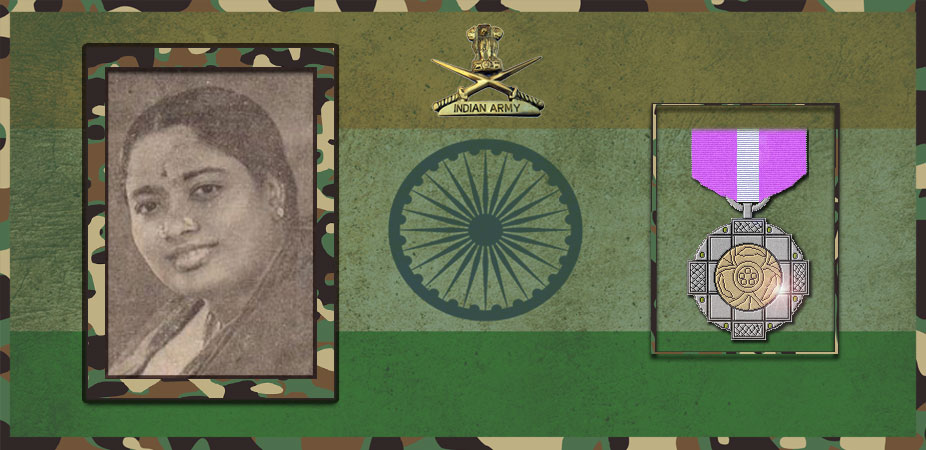Let's salute to our Indian Army together, We are proud to be Indian.
Let's salute to our Indian Army together, We are proud to be Indian.

Damal Krishnaswamy Pattammal ( ( listen) 19 March 1919 – 16 July 2009) was an Indian Carnatic musician and a playback singer for film songs in many Indian languages. She along with her contemporaries M. S. Subbulakshmi and M. L. Vasanthakumari were (and still are) popularly referred to as the Female trinity of Carnatic Music. This trio initiated the entry of women into mainstream Carnatic Music. She has been appreciated all over the world by Carnatic music lovers.
Pattammal was born in a Brahmin family in Kancheepuram of Tamil Nadu, India. She was named as Alamelu, but fondly called “Patta” as a child prodigy. Her father, Damal Krishnaswamy Dikshithar, who was deeply interested in music, inspired her to learn Carnatic music. Her mother, Kanthimathi (Rajammal), although a talented singer herself, was not permitted to sing even for friends or relatives in line with strict orthodox tradition. Despite her orthodox background, Pattammal sang and showed considerable music talent at an early age.
She received no formal gurukula training. As a child, Pattammal sat through the concerts, and on returning home, notated the kritis she heard, and key phrases of ragas. Her brothers D. K. Ranganathan, D. K. Nagarajan, and D. K. Jayaraman – later her vocal accompanists, helped her in this task. She also sang simple devotional hymns and songs her father taught her. Later, she received tuition from an unnamed Telugu-speaking musician, whom she called “Telugu vadyar” or “Telugu teacher”. He’d also offered to teach her Telugu and Sanskrit.
At age eight, Pattammal won first prize for singing Thyagaraja’s “Raksha Bettare” in Bhairavi, at a competition conducted by C Subramanya Pillai (popularly known as Naina Pillai),whom Pattammal admired deeply. According to Pattammal, Naina Pillai would host Thyagaraja Utsavams (festivals dedicated to Tyagaraja) in Kancheepuram every year,and was a veteran in the art of singing Ragam Thanam Pallavi.
In 1929, at age 10, Pattamal gave her first radio performance for Madras Corporation Radio (now known as AIR), and 3 years later, she gave her first public concert at Madras Rasika Ranjani Sabha in 1932. One year later, she moved to Chennai to become a regular performer in concerts and gave her first performance at the Mahila Samajam (the Egmore Ladies Club), and won acclaim. In 1939, Pattammal married R. Iswaran. She quickly rose to stardom, and her musical career spanned more than 65 years.
K. Pattammal’s knowledge was encyclopaedic; she was considered as an authority on Muthuswami Dikshitar‘s compositions, and is also known for her renditions of these. She learnt authentic versions of these compositions from Ambi Dikshitar, a descendant of Muthuswami Dikshitar, as well as Justice T. L. Venkatrama Iyer, an authority on Dikshithar’s compositions. She popularised several Dikshithar’s compositions in her concerts, and also sang Tiruppugazhs and Tevarams that she learnt from Appadurai Achari. Pattammal also learnt many compositions of Papanasam Sivan, directly from the composer himself. She went on to popularise these compositions of Papanasam Sivan, as well as those of Subramania Bharathiyar, both in film and Carnatic music.
Pattammal started a few revolutionary trends in Carnatic music. She was the first Brahmin woman to have performed this genre of music publicly. Brahmins ranked as the highest in the caste hierarchy prevalent in India in the early 20th century, and society considered it taboo for a Brahmin woman to perform on stage.
Pattammal was also the first woman to have performed Ragam Thanam Pallavi in concerts. Ragam Thanam Pallavi, which was classed as a male stronghold, is the most difficult concert item in Carnatic music, as it calls for great skill and a high degree of concentration to handle the rhythmic complexities involved. Pattammal went further to perform very complex Pallavis in intricate talas (rhythmic cycles); impressing and earning the respect of her male peers, connoisseurs and fellow-musicians. Her singing of pallavis was technically perfect, and aesthetically pleasing. For this reason, she became dubbed “Pallavi Pattammal”.She learnt a few pallavis and compositions from Naina Pillai, and several from Vidyala Narasimhalu Naidu, the nephew of Tirupati Narayanaswami Naidu, a prominent composer of javalis. Today, many female Carnatic musicians perform Ragam Thanam Pallavi as the main item in their concerts.
D. K. Pattammal received several awards and titles throughout her career. Most notably these include: